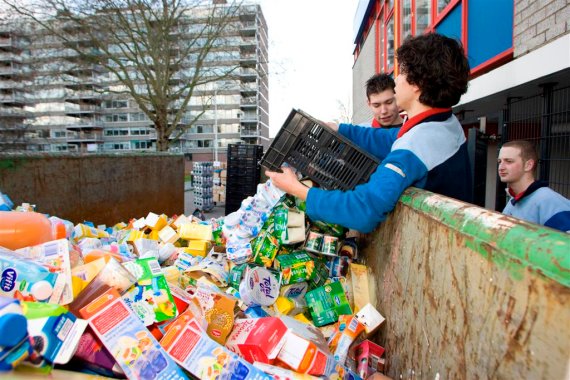Many policymakers are concerned about food waste, but its consequences for the economy were not yet clear. The LEI has now calculated that 40 percent less waste across the EU would produce a saving of 75.5 billion, or 123 euros per person. A further effect of a 40 percent cut in food waste is that it would mean 29,000 square kilometres of farmland, almost the surface area of Belgium, would no longer be needed. You could use this land to grow food for export or to grow fuel crops, says the LEI. Being more careful with dairy products, meat, fruit and vegetables would generate the biggest savings. Even bigger benefits than those brought about by a reduction in food waste would be seen if European households adopted a healthier lifestyle with more fruit and vegetables and less dairy produce and meat, the study shows. This kind of healthy diet would free up farmland three times the size of Belgium, or almost 5 percent of European farmland, according to the LEI’s calculations. Such measures would have a small positive effect on food security in Africa. There would be some drawbacks – there would be a slight drop in incomes and jobs in the agricultural sector if there was less food waste.
Food waste: a costly business
Cutting food waste by 40 percent would be very profitable, suggests a study by agricultural economics institute the LEI, done for the European Commission.

